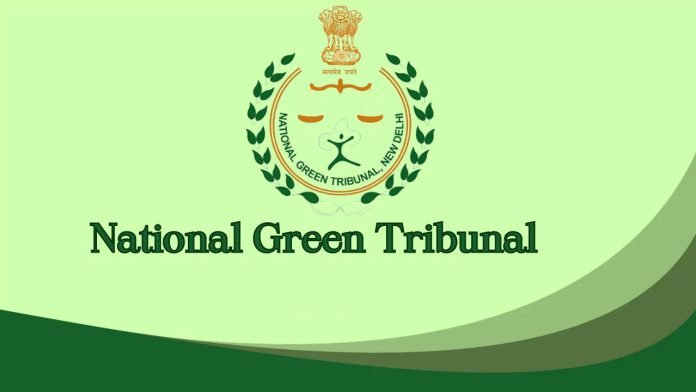Satellite imageries of last 3 yrs of water-bodies sought
*Displeasure expressed over JKPCC, Forest Deptt reports
Mohinder Verma
JAMMU, Sept 14: Expressing dissatisfaction over the reports submitted by Jammu and Kashmir Pollution Control Committee (JKPCC) and Department of Forest, Ecology and Environment, the Principal Bench of the National Green Tribunal (NGT) comprising Justice Prakash Shrivastava (Chairperson), Justice Arun Kumar Tyagi (Judicial Member) and Dr A Senthil Vel (Expert Member) has sought details of action taken against encroachers as well as those polluting wetlands in the Union Territory.
Follow the Daily Excelsior channel on WhatsApp
Further, the Tribunal has sought satellite imageries of last three years of water-bodies/wetlands and details of area recorded in the revenue records and actual on the ground to ascertain the quantum of encroachment that has taken place in blatant violation of the laws.
“On advance notice, J&K Pollution Control Committee has filed a report indicating the name of the nine wetlands and providing the water quality. However, no details of encroachment or waste discharge have been provided by the Committee”, the NGT observed, adding “Central Pollution Control Board in its report has indicated that five wetlands have been declared as Ramsar sites of the 11 wetlands while as Ministry of Environment and Forest has submitted that there are only 3 Ramsar sites”.
Pointing towards the report of JKPCC dated September 7, 2024 containing names of Hygam Wetland, Freshkoori Wetland, Kranchoo Wetland, Chatlam Wetland, Manibugh Wetland, Dal Lake, Anchar Lake, Hokersar Wetland, Hokersar, Wular Lake, Manasbal and Shalibug Wetlands, the NGT said, “the report indicates low dissolved oxygen, higher concentration of BOD, High Coliforms in some of the wetlands and lakes. The water quality is medium to good in most of the wetlands/lakes and in particular Freshkoori wetland in Pulwama, the water is heavily polluted. Further, there is presence of solid waste, plastic waste and bio-medical waste in the wetlands/lakes”.
When asked about the action taken against the concerned authorities for violations of Wetlands (Conservation and Management) Rules, 2017, the Water (Prevention and Control of Pollution) Act, 1974 and Environment (Protection) Act, 1986, the Member Secretary of JKPCC informed the NGT that no such action has been initiated so far. He assured that that JKPCC will identify the violations and take action in accordance with the rules and shall furnish a report.
“A report has also been filed by the Department of Forest Ecology and Environment and the same merely indicates the status of the wetlands/lakes but does not provide any details about conservation and protection measures laid down in the Wetland (Conservation and Management) Rules, 2017 and Environment (Protection) Act, 1986”, the NGT observed.
When asked about the steps taken to prevent encroachment and status of protection of the wetlands, Vivek Modi, Special Secretary (Technical), Forest, Ecology & Environment Department of J&K was unable to provide any information.
Accordingly, the NGT has directed Department of Forest Ecology and Environment, Government of J&K to provide information about total number of wetlands/lakes in Jammu and Kashmir; geo coordinates of each of the wetland/water body; the area covered by such wetlands/lakes as per the revenue records and the area at present for each of the wetland/water body. “The present area shall be calculated based on the satellite images of past three years”, the Tribunal added.
Further, the NGT has sought details of drains, nullahs and other inlets carrying treated/untreated sewage/effluent in the wetlands/water bodies; list of such polluting units/townships/commercial bodies etc discharging untreated effluent into the wetlands/water bodies; water quality of each of the wetland/water body analysed post monsoon; conservation/management plan prepared in accordance with Wetland (Conservation and Management) Rules, 2017 for each wetland/water body and details of the action taken by the J&KPCC on violations identified that are responsible for polluting/destroying wetlands/water bodies.


